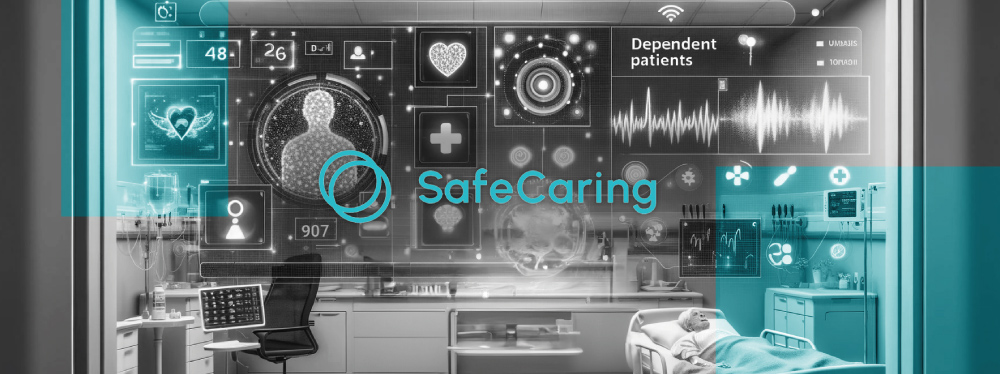SAFECARING
Improving the safety and quality of healthcare by reducing administrative burdens
Challenge
The increase in population ageing, the growing shortage of health professionals, combined with the need to record all medical/clinical acts, has put considerable pressure on health systems and their ability to assist patients with high quality standards. In fact, it is estimated that: a) by 2050, on the European continent alone, the level of dependency among the elderly will reach over 50%; b) by 2035, according to the WHO, there will be a shortage of around 13 million professionals in the global health system; c) each health professional currently spends around 30% of their time on administrative tasks.
Solution
The SafeCaring project takes advantage of the latest technological innovations in the field of computer vision to help professionals monitor dependent users (avoiding potential incidents such as falls or pressure ulcers), alerting professionals to the need to carry out any interventions (e.g. positioning the user), and using natural language processing techniques to speed up the recording of interventions. The project is based on a multidisciplinary methodology, promoting not only technological research, which will guarantee the quality and safety of the system, but also the implementation of mechanisms to guarantee ethical and legal aspects, as well as regulatory compliance for medical devices. The solution will also be tested in a real environment, with an associated impact assessment.
Objectives, Activities and Results expected / achieved
Specific objectives expected:
OE1 - Research and development of AI algorithms for detecting clinical interventions.
OE2 - Research and development of AI algorithms for issuing alerts and reminders
OE3 - Ensure compliance with ethical, privacy, AI and Medical Device (MD) regulations
OE4 - Evaluate the impact of implementing the solution
OE5 - Promote visibility

Project Reference
CENTRO2030-FEDER-01184900Funding

Intervention Region
PortugalTotal Investment
919.640,00IPN Investment
292.512,00Total Eligible
919.640,00IPN Eligible
292.512,00EC Funding – Total
738.888,68EC Funding – IPN
248.635,20Duration
30 MonthsStart Date
2024-10-01End Date
2027-03-31Approval Date
2024-09-27Consortium
Cometa Privilegiado, LdaGPH - Laboratory Services, Lda
Santa Cada da Misericordia da Mealhada
Instituto Pedro Nunes
Universidade de Coimbra
Website
https://safecaring.pt/Keywords
Digital Health;Computer Vision;
Artificial Inteligence.










